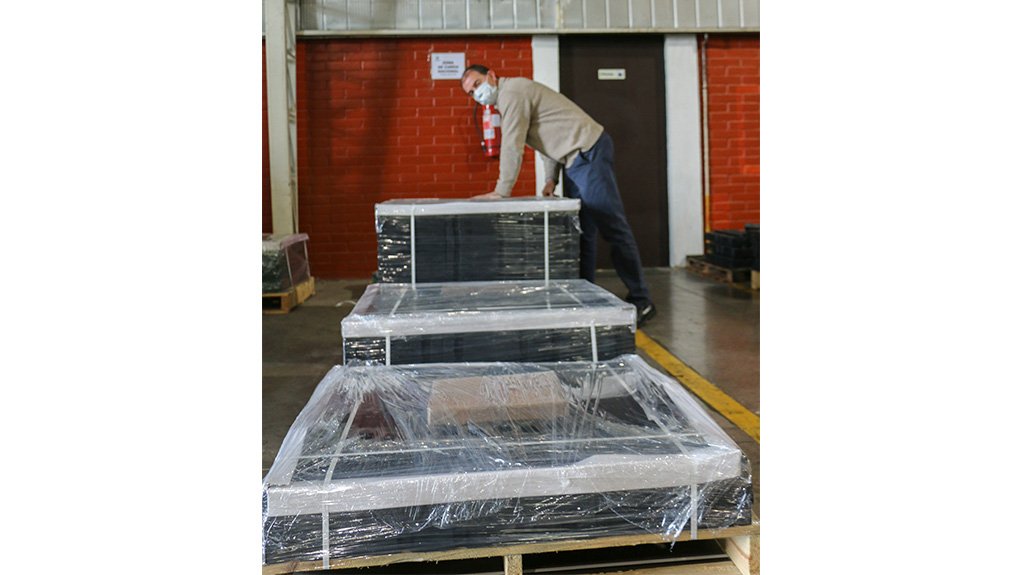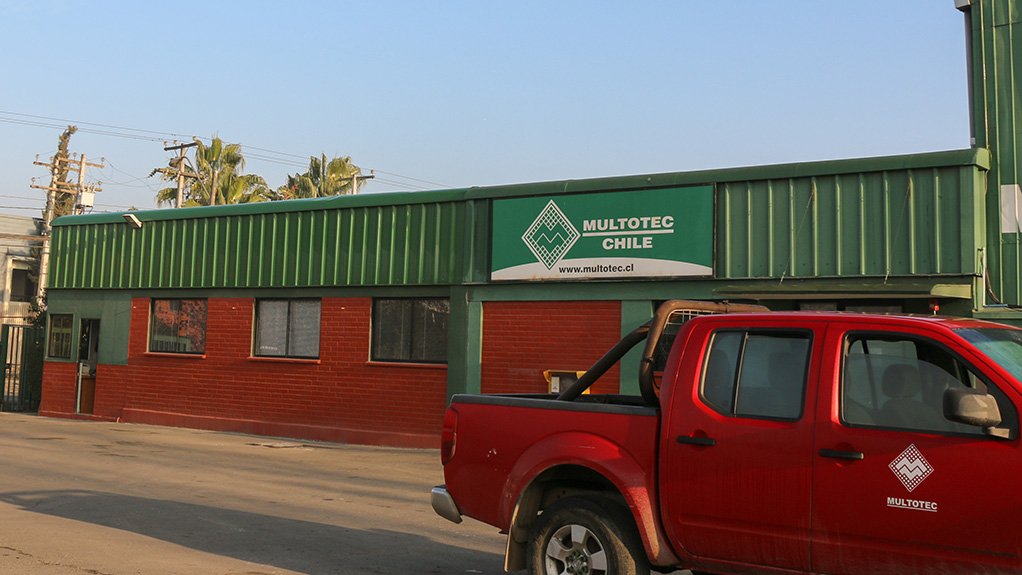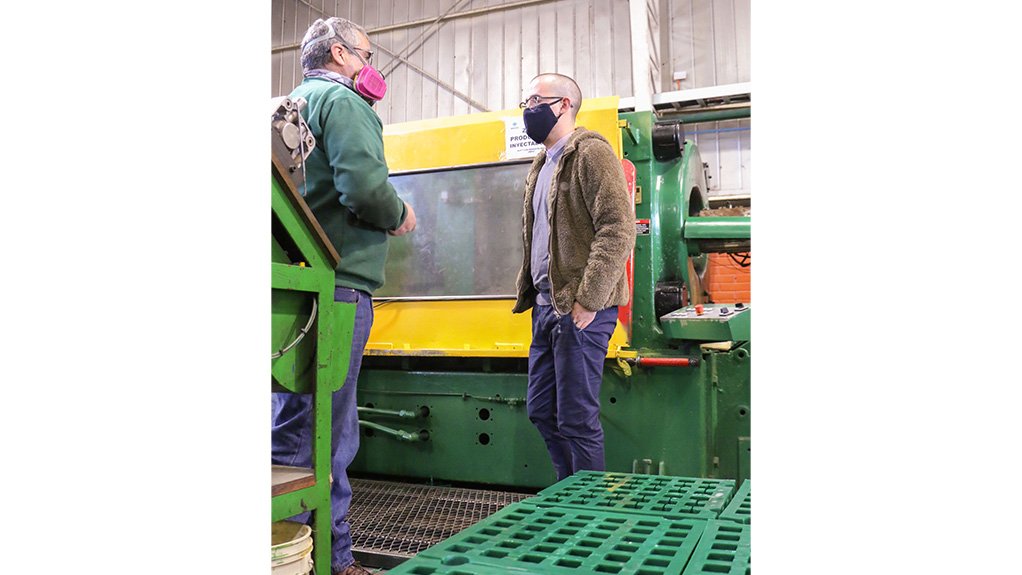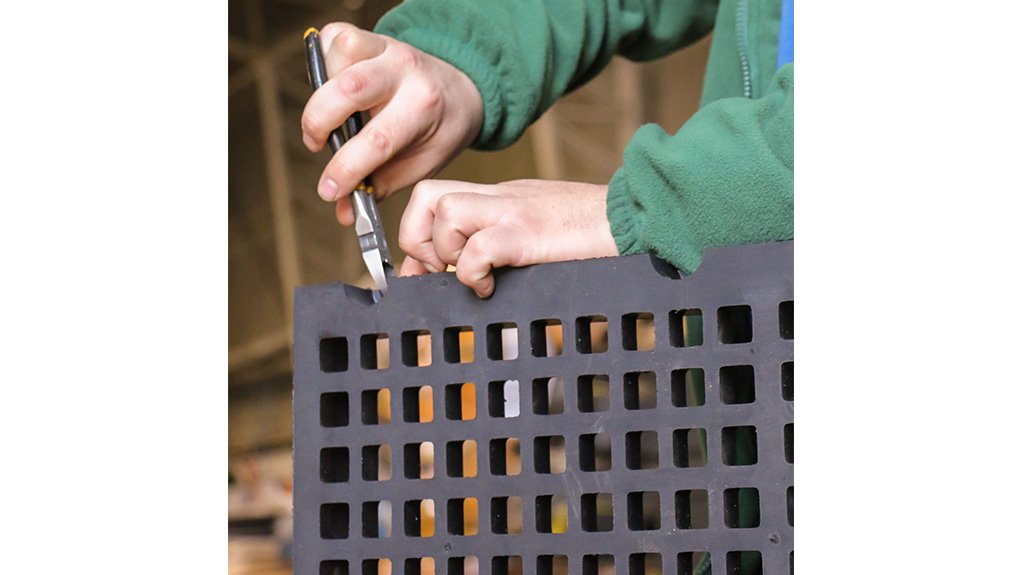South African minerals processing company Multotec is expanding its global reach by investing in South America, where almost 30% of the world’s foreign direct investment is being funnelled.
“South America is a very important mining jurisdiction. Multotec Chile’s official registration in 2014 cemented this fact with the creation of a local team to focus specifically on Chile’s copper mining potential,” says Multotec screening media VP Roy Roche.
He notes, however, that this pales in comparison with the potential in Brazil, which is a vast country with a large mining infrastructure. It was decided that Multotec would build on its Chilean business and link this to the potential in Brazil to expand the company.
Brazil is the second-largest exporter of iron-ore in the world, while Peru – another territory that Multotec is focusing on – is the second-largest copper producer in the world. “We intend building a significant footprint in this area with the established infrastructure to support this because it is an important territory for us,” notes Roche.
Brazil has considerable economic ambitions, with aspirations to export its products worldwide.
It has the ninth-largest economy in the world, with 209-million citizens, making it a powerhouse country with extensive opportunities for growth. It also has impressive manufacturing capabilities, mainly owing to its previous economic isolation from the rest of the world, which forced it to become innovative.
Multotec aims to tap into that manufacturing capability and the innovations it has developed, as well as employ its own innovations. “In so doing, Multotec aims to be part of Brazil’s ambitions to expand its economy. To grow Multotec, is to grow Brazil,” states Roche.
Multotec’s product suite, which includes screening media, trommels, cyclones, samplers and spirals, is a good fit for the commodities in these areas.
Brazil has ambitions to be a mining powerhouse on the continent and is opening up to outside influences to embrace the latest technology, making Multotec the ideal partner for the country to reach its goals, by supplying world-class products to these mining areas.
Multotec has invested heavily in the cities of Santiago, in Chile, and Belo Horizonte, in Brazil. These two production hubs enable the company to support the South American territory, as well as Central America.
“We envisage increasing the number of local people we employ in these areas, as we believe that it is important that the right people are sought, trained and developed for the jobs in these territories,” Roche adds.
Further, the importance of conducting business in the local language cannot be underestimated. Multotec employs locals who speak English – as a supplementary language to their mother tongue of Spanish or Portuguese – in the South American territories.
The cultural differences in the various languages also play an important role in ensuring whether a task is understood or not, making local employees invaluable.
Nationality and national pride also influence the way in which Multotec interacts with customers in the various territories.
The diversity in these different territories enables the company to use ideas, which are driven by different requirements, in other territories. “Having companies in different countries has had an incredibly positive impact on innovation, reinvigorating ideas and product improvements,” notes Roche.
Lessons
Multotec has learned several key lessons from its businesses in Africa, Australia and China. “We have been able to take those lessons across to the South American territories and implement them there,” says Roche, noting that the worldwide cultural variance allows for new ideas and problem-solving capabilities.
Brazil offers several advantages in terms of innovation, specifically through its universities and small businesses, which Multotec hopes to “plug into” and expand to other places in the world where there might be similar challenges that require new ways of thinking.
New technology and innovation are also often developed in South Africa, with further development in Australia, allowing for new problem-solving ideas as new challenges emerge.
“The experience, product development and materials of manufacturing, as well as production methodologies gained from iron-ore mining in Australia, are being implemented in the mines in Brazil,” he notes.
Production Hub Strategy
Multotec has a significant production capability in South Africa, Australia and China. The final production capability will be in South America, which will enable the company to supply products from any territory to any mine in the world.
This is particularly advantageous if one of the territories cannot produce, owing to unforeseen challenges such as an earthquake. “This enables Multotec to satisfy not only client requirements from any of the hubs worldwide, but also global demand”, adds Roche.
Having manufacturing capabilities in different territories also offers several advantages, including lower labour or material costs.
Roche reveals that an often overlooked, but vitally important, aspect to consider is time zones. “Time zones play a crucial role in communication, as well as how different areas of the globe are supplied. Having a production hub strategy that meets the requirements of clients in all time zones ensures a fast time to market, as well as a local and international presence,” he says.
Multotec can ship its state-of-the-art products that are manufactured according to high standards from anywhere in the world, and is confident that they meet all the required specifications.
All Multotec’s products are manufactured according to strict quality requirements, with the same manufacturing techniques used, whether they are produced in China, Chile or South Africa, concludes Roche.
Edited by: Nadine James
Features Deputy Editor
EMAIL THIS ARTICLE SAVE THIS ARTICLE
ARTICLE ENQUIRY
To subscribe email subscriptions@creamermedia.co.za or click here
To advertise email advertising@creamermedia.co.za or click here





















